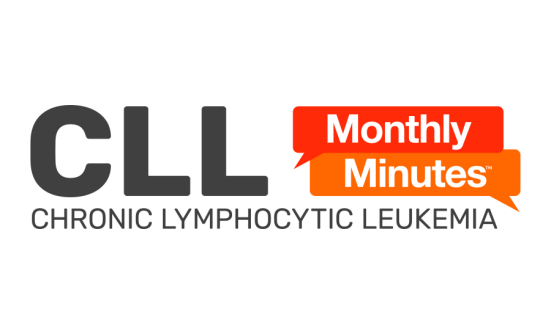Treatment options for chronic lymphocytic leukemia (CLL) have rapidly expanded over the past 10 years.1 Although targeted therapies like Bruton’s tyrosine kinase inhibitors and BCL2 inhibitors have become the preferred first-line therapy for most patients, chemoimmunotherapy (a combination of chemotherapy and immune system–modulating drugs) is still used in some patients with newly diagnosed CLL who require treatment.1,2
One common chemoimmunotherapy regimen is FCR, as it is a combination of the drugs fludarabine, cyclophosphamide, and rituximab. For more than a decade, FCR has been a first-line treatment for CLL, especially in patients who are younger and have fewer health problems.3 However, for older patients with CLL and comorbid health conditions, full doses of fludarabine-containing therapy have been associated with bone marrow toxicity that has resulted in severe infections.3
A recent study sought to understand whether a reduced-dose FCR regimen could be effective as first-line treatment for patients with CLL who were older or had additional health conditions.3 In this study, more than 100 patients with CLL or small lymphocytic lymphoma (SLL) were treated with half as much fludarabine and 60% as much cyclophosphamide as in normal FCR treatment.3 Patients received the standard dose of rituximab in this study.3
Seventy percent of all patients included in this study were aged >65 years, 5% had reduced kidney function, and 42% had serious comorbid health conditions.3 In the study, treatment with low-dose FCR was generally well-tolerated.3 Abnormalities in blood cells were relatively common, with low counts of neutrophils seen in 56%, platelets in 10%, and red blood cells in 7% of patients.3 Although serious infections occurred in 15% of patients, they were not more common in patients with decreased kidney function or with severe health conditions.3
Most (81%) patients receiving low-dose FCR showed some level of response, with 37% having no detectable signs of cancer after treatment.3 Half of all patients had no disease progression for approximately 2.5 years after starting the study, and half were still alive about 5 years after the study began.3 Notably, patients whose CLL had certain genetic features were more responsive to low-dose FCR treatment than others. Specifically, cancers with a mutated IGHV gene, those with an extra copy of chromosome 12 (trisomy 12), and those with a deletion of the long arm of chromosome 13 (del 13q) were slower to progress after treatment with low-dose FCR.3
Results of this study suggest that low-dose FCR may still be a suitable first-line therapy for certain elderly patients with CLL and comorbidities, particularly if they have certain favorable biological features like a mutated IGHV gene.3 However, patients should be aware that another recent study has reported that rituximab (the ‘R’ in FCR) may be associated with increased risk of contracting severe COVID-19 in patients with lymphoma.4 As always, patients should discuss the benefits and their concerns of any treatment with their healthcare team.
References
- Delgado J, Nadeu F, Colomer D, Campo E. Chronic lymphocytic leukemia: from molecular pathogenesis to novel therapeutic strategies. Haematologica. 2020;105:2205-2217.
- Astor L. The battle for the front line in CLL moves away from chemoimmunotherapy. Targeted Therapies in Oncology. Published October 14, 2020. www.targetedonc.com/view/the-battle-for-the-front-line-in-cll-moves-away-from-chemoimmunotherapy. Accessed June 17, 2021.
- Smolej L, Brychtová Y, Cmunt E, et al. Low-dose fludarabine and cyclophosphamide combined with rituximab in the first-line treatment of elderly/comorbid patients with chronic lymphocytic leukaemia/small lymphocytic lymphoma (CLL/SLL): long-term results of project Q-lite by the Czech CLL Study Group. Br J Haematol. 2021;193:769-778.
- Ingram I. Anti-CD20 drugs tied to severe COVID in cancer patients. Published February 5, 2021. www.medpagetoday.com/hematologyoncology/lymphoma/91092. Accessed May 17, 2021.















